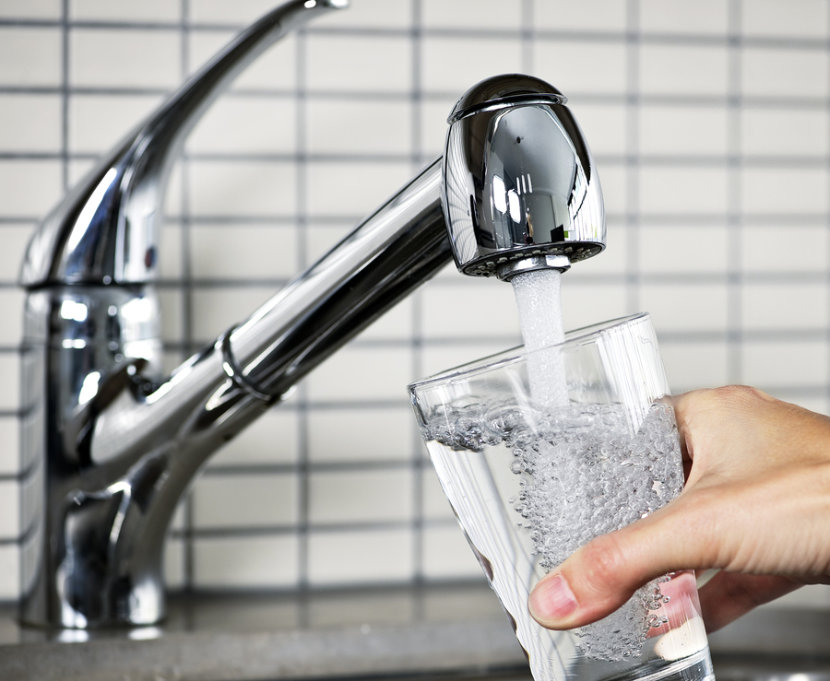
Nothing satisfies thirst better than a tall glass of cold water. During the summer you may be more aware of drinking enough fluids to prevent dehydration. Staying well hydrated when it's hot is definitely a must; however, hydration is important to your health year round. Read on to learn about how much fluid you need to stay healthy and which fluids you should choose most often.
Why fluids matter
Fluid is essential! It has many important roles. Fluids help to:
- move nutrients and waste through your body
- keep your blood pressure normal
- protect and cushion your joints and organs
- control your body temperature and
- lower your risk of dehydration and heat stroke
What is dehydration?
Dehydration is when you lose more fluid than you take in. Below are some of the signs of dehydration:
- Thirst
- Dry lips and dry mouth
- Flushed skin
- Headache
- Dizziness and fainting
- Dark yellow, strong smelling urine
- Low blood pressure and increased heart rate
You may be dehydrated even if you don’t have any of the signs so it is important to drink fluids often even before you feel thirsty.
Getting enough fluid
The amount of fluids you need depends on your age, gender and level of physical activity. Remember that you will need even more fluids to stay hydrated in hot weather and when you are physically active.
Use the chart below as a guide to how much fluid you should aim to have each day. Keep in mind that your total fluid intake can include water as well as milk, coffee, tea and juice. Coffee and tea are not dehydrating.
| Life stage |
Aim for (cups)* |
| Infants |
| 0-6 months |
3 (from breastmilk or formula) |
| 7-12 months |
2.5 (from breastmilk, formula, water or fluid milk) |
| Young Children |
| 1-3 years old |
3.5 |
| 4-8 years old |
5 |
| Older children |
| 9-13 year old girls |
6.5 |
| 9-13 year old boys |
7 |
| Women |
| 14-18 year old |
7 |
| 19 years and older |
9 |
| Pregnant |
9 |
| Breastfeeding |
12.5 |
| Men |
| 14-18 years old |
10.5 |
| 19 years and older |
12 |
*1 cup = 250 mL
Do I need to drink eight glasses of water every day to stay healthy?
No. Research shows that drinking less than eight glasses of water per day does not lead to negative health effects. The amount of water that a person needs to drink every day is different for everyone. What is most important is that you drink enough fluids to avoid dehydration. Your fluid intake can include water as well as a variety of other fluids.
How to know if you are drinking enough
Check your thirst - If you are thirsty or have a dry mouth, it is likely that you are not drinking enough. Aim to drink fluids often throughout the day. Remember that once you are thirsty, you are already somewhat dehydrated.
Check your urine - If your urine is a dark yellow colour and has a strong smell, you may not be getting enough fluids. Urine that is light yellow or clear in colour usually means that you are drinking enough fluids. The amount of urine you make can also be a sign of your hydration status. If you do not make much urine throughout the day and it is dark in colour, you likely need more fluids.
Check your mood – If you feel light headed and tired, are not able to focus or have many headaches, these could be signs that you are dehydrated.
Tips to meet your fluid needs
- Be aware of your thirst and drink fluids often throughout the day.
- Choose water to drink when you are thirsty. Avoid soft drinks.
- Keep water nearby when you are at work, at school, at play or out and about.
- Enjoy other fluids such as skim, 1% and 2% milk, fortified soy beverages, 100% vegetable or fruit juices and soups to help you meet your fluid needs.
- Choose decaffeinated drinks more often to keep you well hydrated. Drinks with caffeine should be limited to 3 cups per day.
- Take sips of water while eating meals and snacks.
- Keep a jug full of ice water, with lemon, lime, orange or cucumber slices in your fridge at home or at work.
- Remember to drink more in hot weather and when you are very active.
Hydration as you get older
Drinking liquids throughout the day is especially important for older adults. Dehydration can lead to dizziness, fainting and low blood pressure which may put older adults at risk for falls. Dehydration may also make constipation worse.
Bottom line
To meet your fluid needs throughout the day, choose water most often. Remember that other fluids like milk, coffee, tea and juice also count towards your daily fluid intake. Try to avoid soft drinks and limit drinks with caffeine to 3 cups per day. Remember to drink even more fluids when you are active and during hot weather.
You may also be interested in:
Video: Healthy beverages – Choose water
Sports nutrition: Facts on hydration
Last Update – October 25, 2021